Cultivating critical thinking
Transformative learning where a youth causing problems in the community goes back to school by the help of EDS. Created by the EDS youth
Critical thinking enables us to analyse, evaluate, interpret, infer and reflect so we can make informed decisions and develop ethical awareness. This is a crucial life skill to be able to navigate the complexities of life with clarity and confidence.Lorem ipsum dolor sit amet, consectetur adipiscing elit. Ut elit tellus, luctus nec ullamcorper mattis, pulvinar dapibus leo.
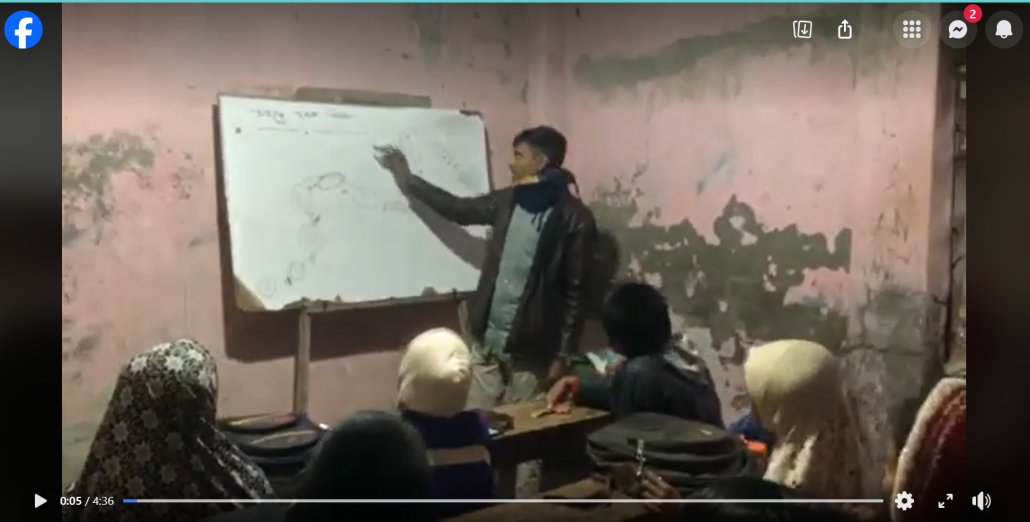

Watching and critically reflecting on a video of Munna engaging his students.
Challenge
Since our inception in 2005, we have witnessed a lack of critical thinking among children, youth, and adults in the community where EDS works. Many struggle to break down complex information, assess the credibility of what they hear, or reflect on their beliefs and choices. This often leads to hasty decisions that have harmful consequences like joining youth gangs, engaging in illegal activities, becoming errand boys for local leaders, early marriage, school dropout and suicide.
In Bangladesh, the education system provides limited opportunities for reflection and critical thinking. Students often consume information passively, leaving them ill-equipped to challenge the status quo or question harmful narratives. The authoritarian system also means critical thinking is associated with risk of harassment and punishment. Children and youth are trained to obey orders and often don’t dare to ask questions to adults in fear of being ridiculed and punished. They have also learned that adults mainly pose questions to find whom to blame and punish.
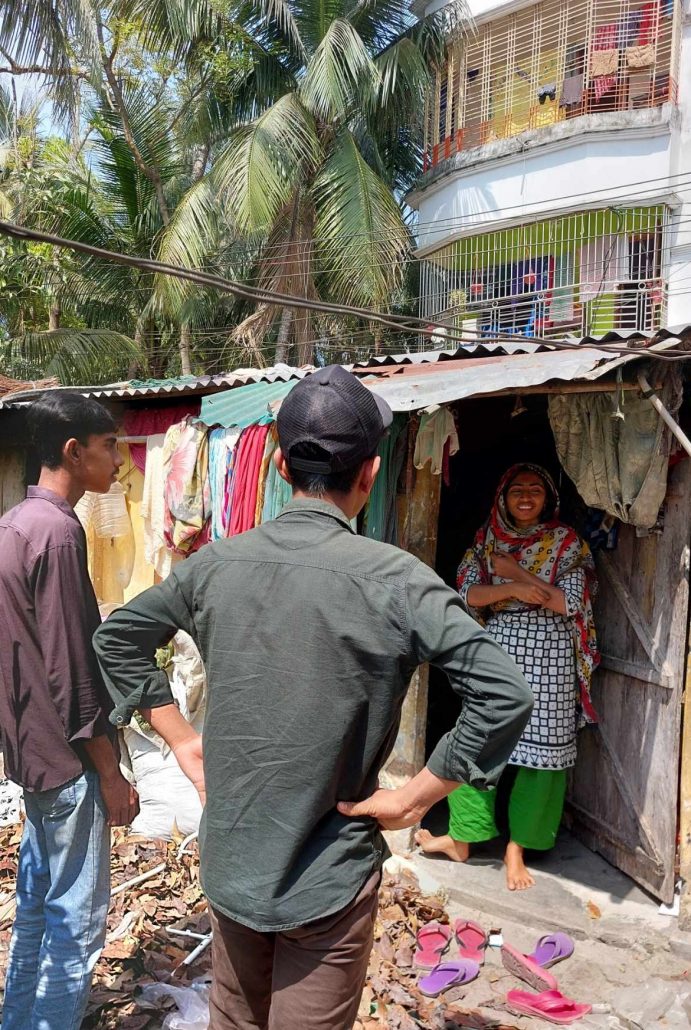
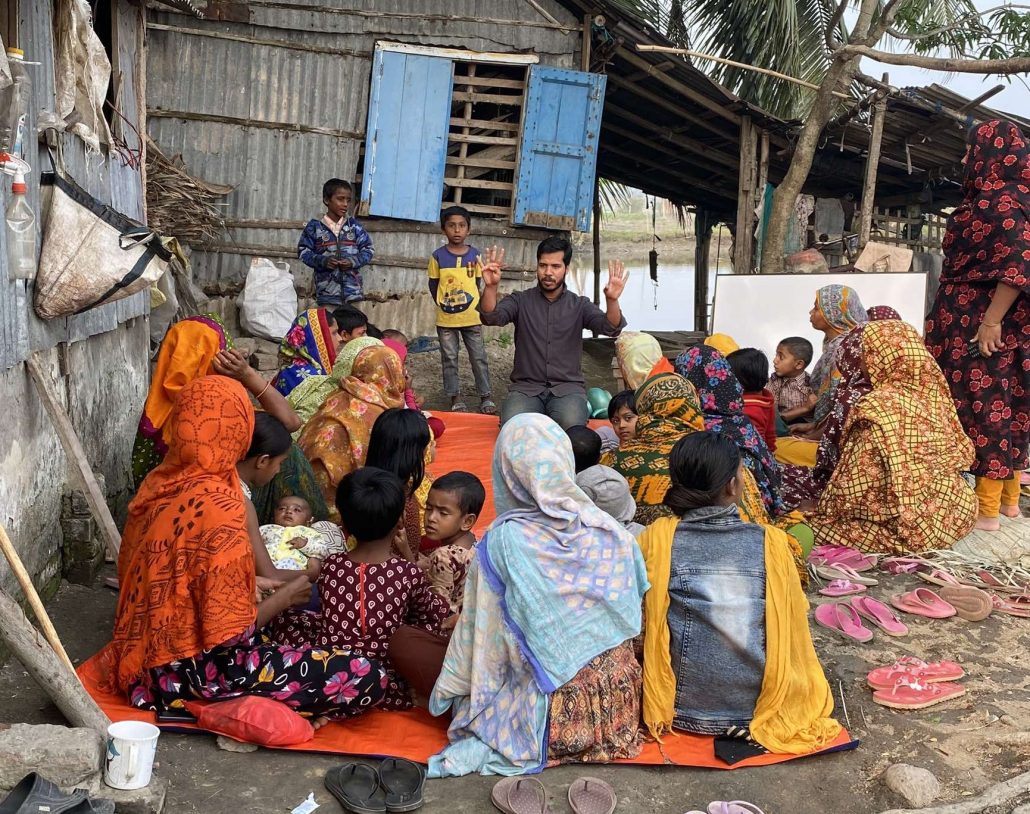
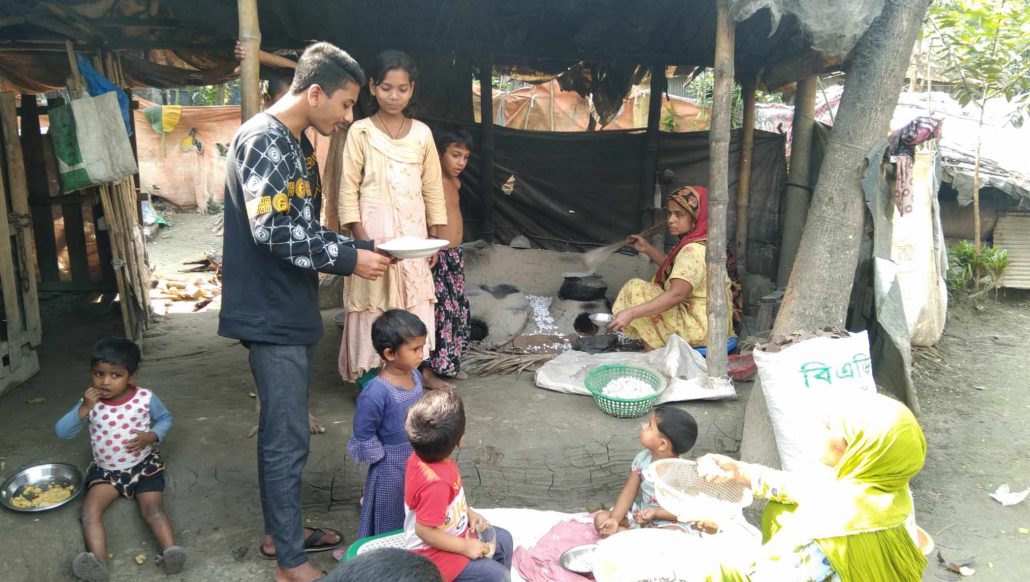
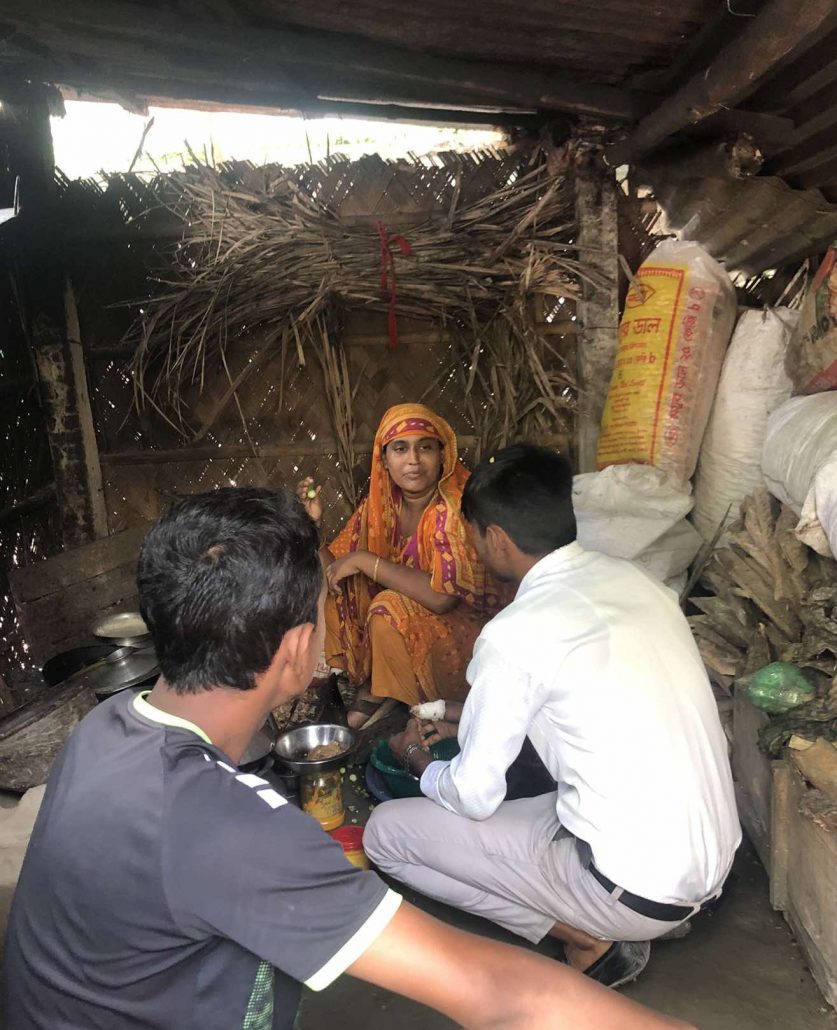
EDS boys visit children, youth and parents in the community to learn their needs and discuss solutions. Some of these boys were youth gang leaders and members whom the community feared. Now the community warmly welcome and appreciate them.
Our response
In EDS, we foster an environment for reflection and critical thinking. We encourage children and youth to engage deeply with the material, ask probing questions, and explore the implications of their decisions. Through collaborative discussions, individual challenges, and real-world problem-solving, they learn to take ownership of their learning journey.
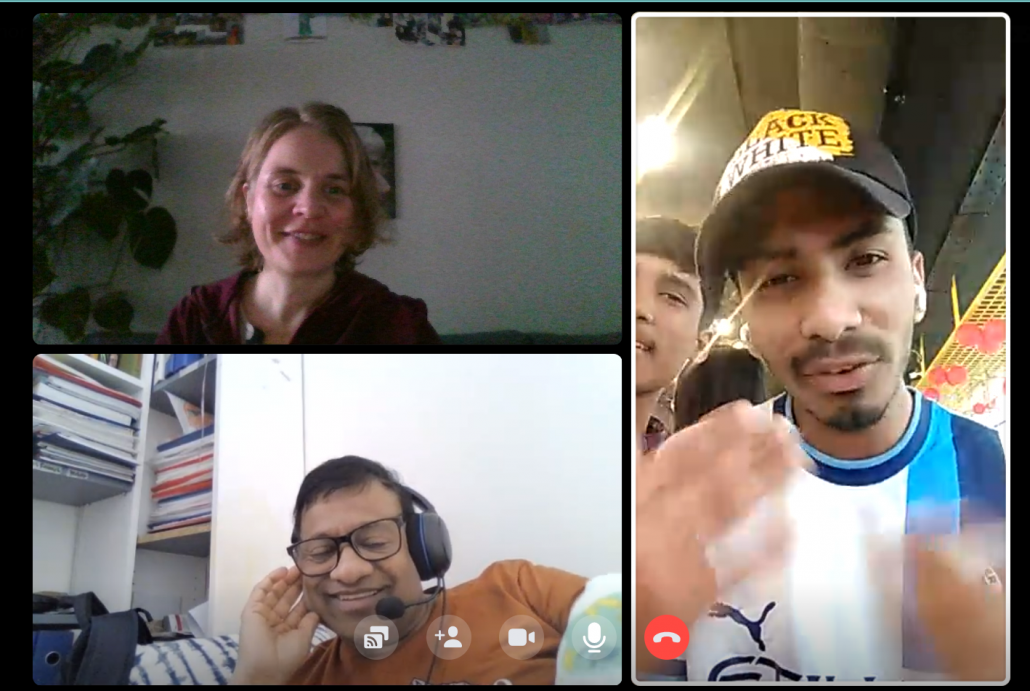
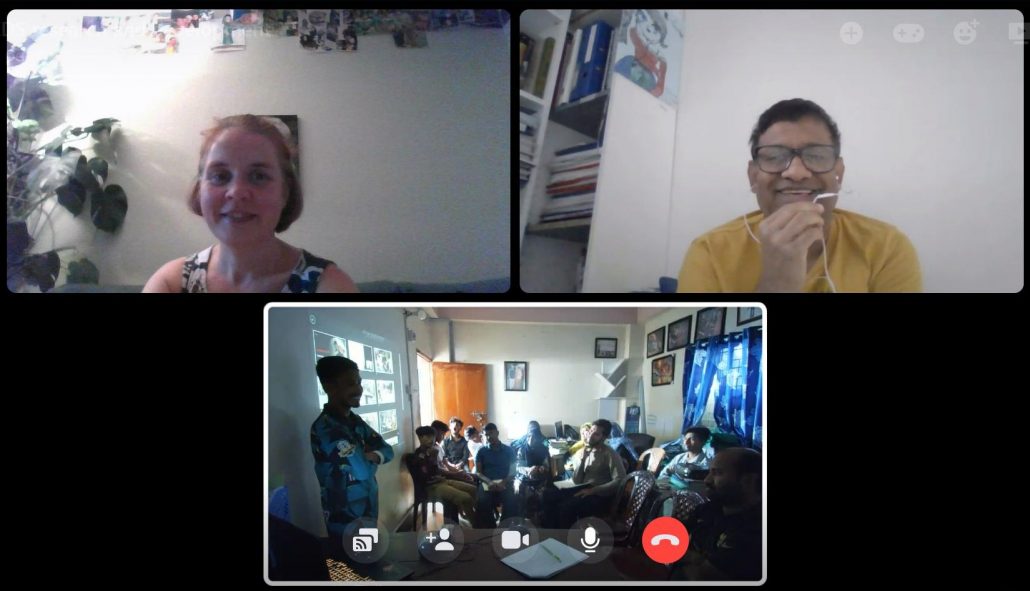
EDS children and youth excitedly sharing their ideas and getting support and critical questions from peers.
We cultivate critical thinking abilities through:
- Experiential learning, responsibility and ownership: We empower children and youth to identify challenges, develop plans to address them, and act based on their insights. They develop a sense of responsibility and ownership as they see the results of their own work. This increases their interest to learn from own experiences in order to improve.
- Observation, critical reflection and discussion: To become aware of our own actions, we observe and critically reflect on own actions in videos and pictures. We encourage children and youth to engage in self-evaluation and write reflection notes to assess their own beliefs and thought processes.
- Role-play: Our children and youth get to play out common scenes they experience as challenging and discuss solutions. They also script and make videos where they act common challenges children and youth face in the community, and how EDS has created solutions. These videos are base of critical reflection on everyday challenges, why they occur and persist in the culture, and how we can create different outcomes by acting differently and practicing our life-affirming values.
- Psychologically safe environment and critical questions: We continuously work to create an environment where our children and youth feel safe to explore their thoughts and actions. Then, we facilitate them to ask each other critical questions and follow up questions to encourage deeper analysis and reasoning.
Lorem ipsum dolor sit amet, consectetur adipiscing elit. Ut elit tellus, luctus nec ullamcorper mattis, pulvinar dapibus leo.
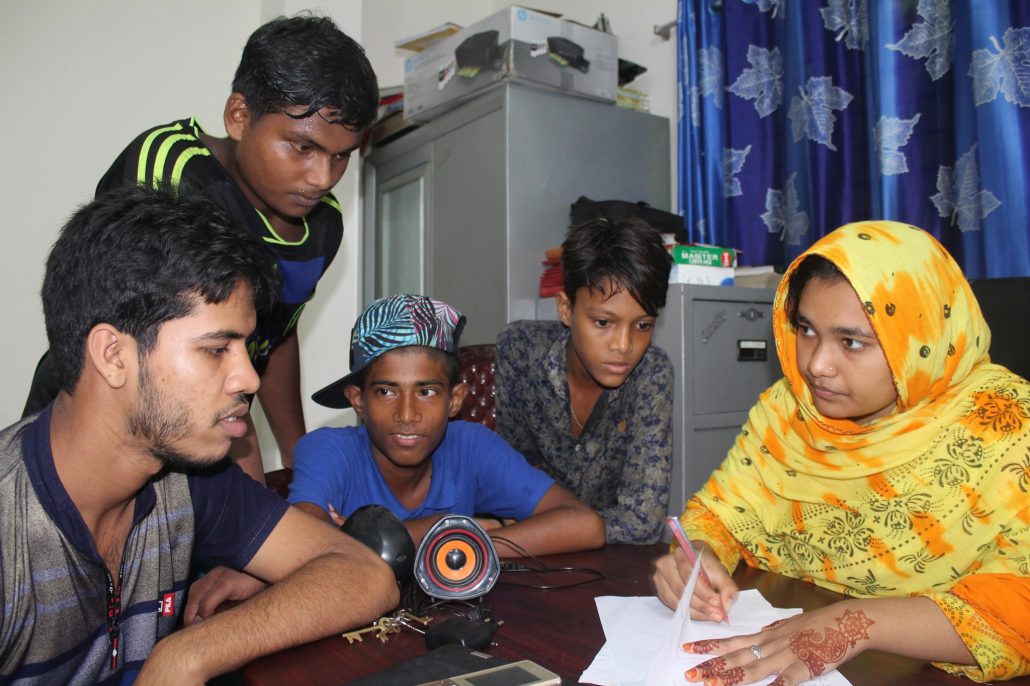
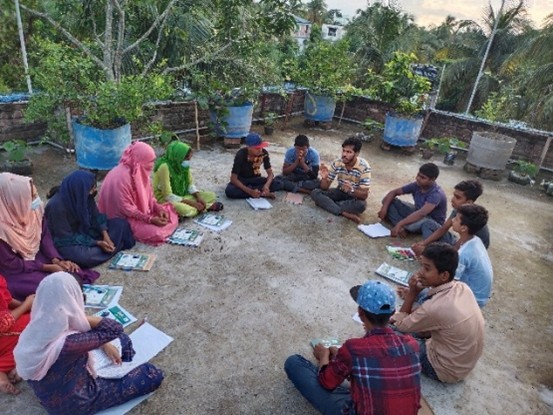
Finding solutions together
Results
Our children and youth now feel safer to explore their own thoughts and actions and they have started asking each other critical questions in a loving way. They no longer rush into decisions without careful consideration. Instead, they analyse challenges and related information, see the situation from various viewpoints, consider ethical dilemmas and encourage everyone involved to do the same.
Together, let us continue to foster a culture of critical thinking, where every child and youth can think deeply, act wisely, and contribute positively to society. Join us on this transformative journey and witness the incredible potential that unfolds when we invest in the minds of our future leaders!
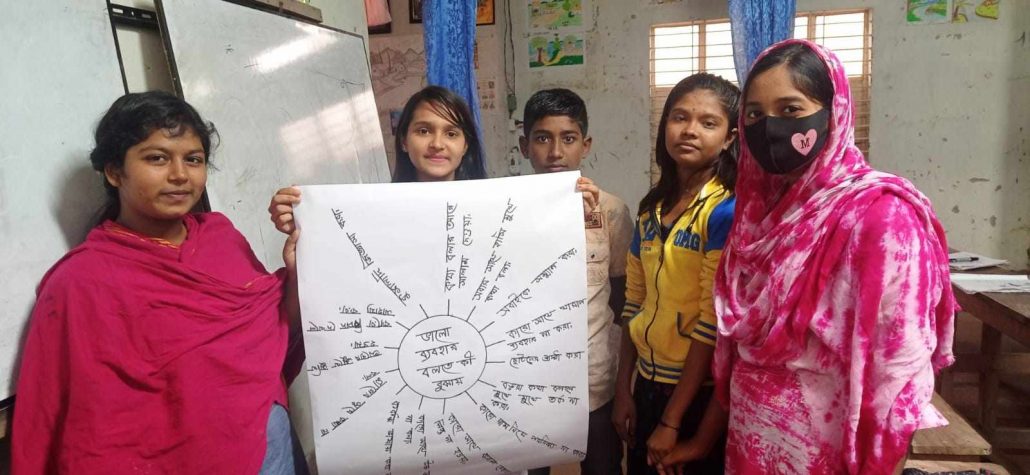
EDS students’ ideas about sustainable development